In Casablanca, Looking for Hillary Clinton
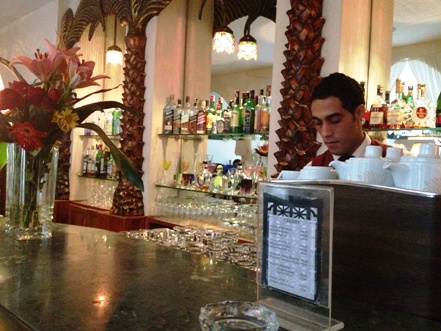
CASABLANCA, Morocco -- As a slightly subversive Ingrid Bergman once provoked the lounge pianist Sam to play "As Time Goes By" at Rick's Café in the movie Casablanca, so rebels the restored version of the Café in modern day Casablanca, a somewhat scruffy metropolis, in real-life 2012.
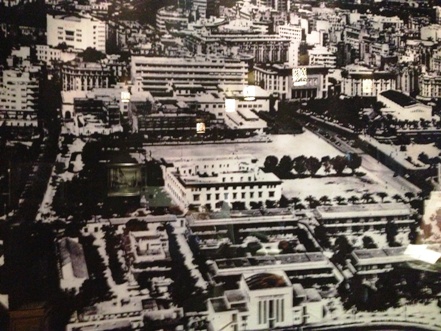
Rick's lights up as the city lumbers. Classically decorated with beautiful ceramic tiles, teak and palm fronds jutting into a riad's vaulted ceiling, Rick's sparkles amid the city's soot.
What launched Rick's Café?
Capt. Renault: I've often speculated why you don't return to America. Did you abscond with the church funds? Did you run off with a Senator's wife? I like to think that you killed a man. It's the romantic in me.
Rick: It's a combination of all three.
Renault: And what in heaven's name brought you to Casablanca?
Rick: My health. I came to Casablanca for the waters.
Renault: The waters? What waters? We're in the desert.
Rick: I was misinformed.
Casablanca is a
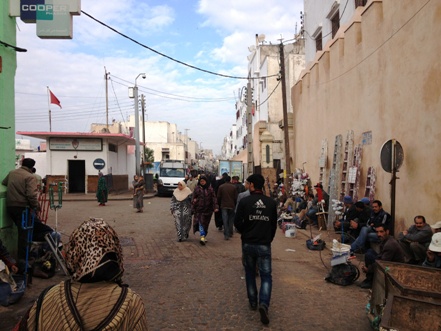
bustling, dusty business capital. There is little tourism, little fanfair.
This comes as relief after spicy Marrakesh, which draws Europeans, wealthy Emerati, rich Congolese -- and battalions of local hustlers hoping to earn a few dollars in the informal tourist trade. Even a confident explorer eschewing tour groups and chaperoned safaris may experience irritation and pangs of fear when constantly approached by those who wish to be of help in some way -- for money, bien sûr.
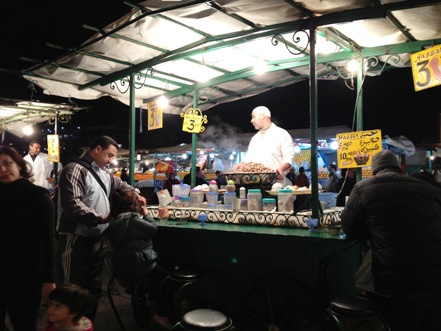
While Marrakesh is colorful and dramatic with its souks and bustling nightlife, Casablanca is a relief with its business focus and nonchalance.
A cappuccino costs a dollar in Casablanca; two in Marrakesh. Wifi and alcohol are everywhere in Marrakesh, harder to find in the capital to the north. Both cities are visibly Islamic, a bit of a surprise on the Atlantic Ocean a stone's throw from Europe, especially in this once grande ville where French bread, café au lait and Gauloise can be found on every block, more common than minarets.
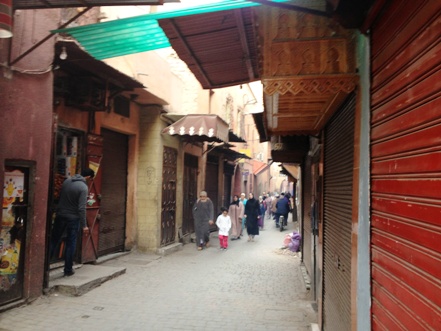
Blessed with enough rain to produce luscious fruits and vegetables, striking geography that includes the Sahara, the Atlas Mountains, and the gorgeous North Atlantic, Morocco is a promising and interesting stop in Western North Africa after doing business in the Middle East and capitals like Cairo and Tunis.
But make no mistake: women are second class, the country is poor, and even a Hollywood fable known to all can't change the fact that the country has a long way to go to sit comfortably in the Second World, not to mention the First.
Corruption in this strategic outpost at the crossroads of Europe, the Middle East and Africa is allegedly widespread.
Rick: How can you close me up? On what grounds?
Renault: I’m shocked, shocked to find that gambling is going on in here.
Employee of Rick's: [hands Renault money] Your winnings, sir.
Renault: Oh, thank you, very much. Everybody out at once!
On a long walk from a downtown hotel to the train station, an American in Casablanca paid 7 Dirhams, or less than 90 cents, for a café au lait at a regular café occupied solely by men, the typical clientele. It was far enough off the tourist track that the waiter looked anxiously at her -- either surprised to see a woman sit with the men, or simply hoping that they both spoke enough French to get the deal done. The café au lait was delicious. The waiter looked relieved.
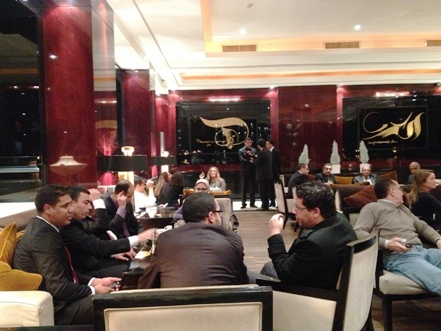
Creature comforts abound for those who can afford it. The beautiful Hyatt at $300 a night offers cold Heinekens at about $9. The bar is elegant and friendly -- recalling the glamour of times gone by, and the Wifi is the best in Morocco -- even better, it's free.
But trying to blend in with the regular Tareks, Daouds, and Hashims of this country -- or even their upper-class brethren -- reveals a landscape of challenges.
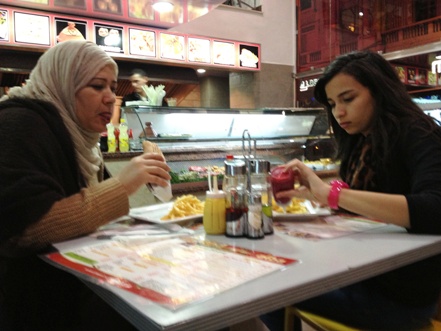
With per capita income of about $5,100, ranking Morocco ahead of Guatemala and Syria but behind Armenia, Georgia and Swaziland, Moroccans still look to Mother France for ideas and most foreign investment. A recent visit to Casablanca including investors and French Prime Minister Jean-Marc Ayrault once again declared the nations' joint commitment to amitié and future prosperity.
This arrangement isn't so bad for France. While Morocco imports over $6 billion in French goods annually, France imports $4.2 billion of Moroccan goods in return. The Hexagon thus runs close to a 50% trade surplus with its old colonial ami.
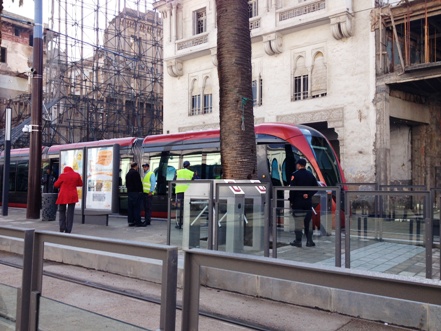
To mark the occasion of the new vows of friendship last week, the government popped champagne corks as the first-ever commuter tram (manufactured in France) started running in the capital. It is suddenly the most sophisticated public transport system in Africa. Even the popular, western-educated King Mohammed VI, whose portrait perches in many shops, was there to wave and take a spin to recognize this success of French-Moroccan cooperation.
Before she came down with a stomach virus last week, U.S. Secretary of State Hillary Clinton was also supposed to be in Morocco for meetings with foreign ministers regarding Syria. Watching local women camouflaged under veils and occupying few high-ranking positions in the government and private sectors, one is reminded of the critical work Sec. Clinton has done across the globe to lift women to greater levels of education, equality and influence.
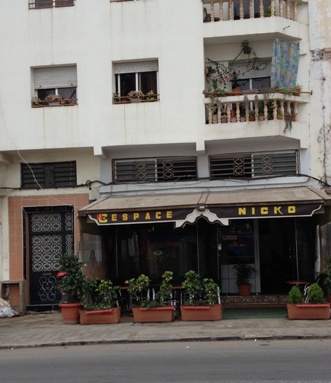
No matter how much she has done for women and America, the Secretary -- and perhaps future President -- needs to do more. The future of women worldwide -- and the related peaceful coexistence between the Muslim and Western worlds, depends on it.
Rick: If that plane leaves the ground and you're not on it, you'll regret it. Maybe not today, maybe not tomorrow, but soon and for the rest of your life.
Ilsa: But what about us?
Rick: We'll always have Paris. We didn't have it before...we'd...we'd lost it until you came to Casablanca. We got it back last night.
Ilsa: When I said I would never leave you ...
Rick: And you never will. But I've got a job to do too. Where I'm going, you can't follow. What I've got to do, you can't be any part of. Ilsa, I'm no good at being noble, but it doesn't take much to see that the problems of three little people don't amount to a hill of beans in this crazy world. Someday you'll understand that. Now, now. Here's looking at you, kid.
Here's looking at you, Madame Secretary, and a country with a gin-joint named Rick's.
